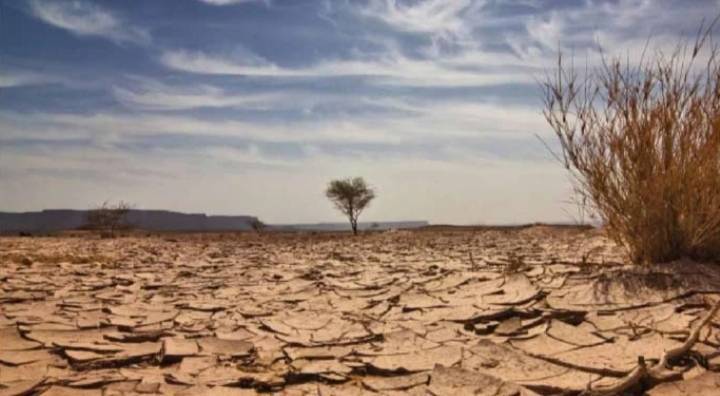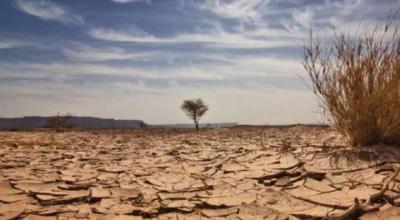Floods in Jeddah, hail in Kuwait, and heatwaves in Europe... It has become clear that the Earth's climate systems are experiencing dramatic changes that are difficult to cope with. Lebanon is no exception, witnessing unprecedented fluctuations in its weather and climate. While countries around the world are working to address these conditions with all available means to mitigate their damage, Lebanon stands completely helpless against climatic factors that threaten to plunge it further into ruin.
The sight of torrents sweeping through roads, buildings, and homes in late November, along with the death of an elderly man swept away by the floods, served as the first warning for this year about what calamities may await the Lebanese in winter. Before that, repeated wildfires in Lebanon had signaled a fiery warning that climate change is a reality that cannot be escaped. However, in a country plagued by chaotic governance and a lack of awareness among citizens regarding the necessity of protective measures to curb the damages of climate change, one must question: where is Lebanon heading?
### Climate Change is an Imminent Threat
Indeed, the impacts of climate change are becoming increasingly visible, as noted by Samir Skaf, president of the Green Globe environmental association. These effects are manifested in nature's fury in unusual places, including floods and winter storms, followed by summer droughts and wildfires. Consequently, these matters have negative repercussions on people's lives, leading "aware" nations to take initiatives to reduce climate change impacts. Otherwise, the world must prepare for a mass migration of populations from high-risk areas to safer regions. An increase in awareness is essential, particularly among governments, to fulfill their "climate" commitments; otherwise, risks may escalate into deadly disasters.
In Lebanon, experts agree on the climate change impacts on both nature and people. Joe Al-Qarih, director of the "Weather of Lebanon" site, confirms that there has been a noticeable reduction in rainy days during winter. Due to global climate changes, the winter pattern has shifted from what Lebanon was accustomed to in the past, with extremes in terms of temperature and precipitation. This means that there can be extended periods of clear weather followed by heavy rainfall in a short duration, leading to floods, or storms accompanied by a sharp drop in temperature that does not last long then returns to normal or above-average heat. Even snowfall is rarely reaching low altitudes, and its persistence on high peaks has become short-lived due to sudden increases in temperature.
This year, as we are already in mid-January, engineer Michel Fram, head of the Agricultural Scientific Research Institute, states that temperatures remain above average and are likely to continue. Light snowfall persists on mountains, negatively affecting the ski season, aggravating the economic crisis. The decrease in rainfall will also adversely affect all crops, especially wheat. Rising temperatures will result in premature budding of trees, exposing them to risks of late frosts, leading to further diseases and pests.
### How Does Lebanon Face Climate Challenges?
The risks are real, and it is thus imperative for the government, relevant ministries, and research centers to find ways to adapt to these changes. However, to date, commitments to address climate change seem to remain mere words on paper, despite the Ministry of Environment's efforts to work on sustainable plans to protect Lebanon from dangers. But plans alone are not enough if they are not implemented.
For instance, the Ministry of Public Works or municipalities, despite their efforts, have not sufficiently expanded waterways to absorb floods should they occur, while climatic indicators forecast that floods may reoccur at different times of the year. Moreover, citizens who have borne the bitter consequences of flooding still fail to refrain from throwing their trash on roads and drainage channels, neglecting laws that are not strictly enforced against them.
### The Government's Acknowledgment of the Crisis
Caretaker Prime Minister Najib Mikati, who participated in the recent COP 27 climate summit in Sharm El-Sheikh, Egypt, revealed in his address that Lebanon is among the countries severely affected by the ramifications of climate change. Studies carried out by the Lebanese Ministry of Environment indicated that climate change will lead to a 14% decline in Lebanon's GDP by 2040, and a more significant decrease of 32% by 2080. This climate change threat will exacerbate the existing predicaments and crises.
Mikati emphasized the impact of climate change on agriculture in Lebanon, stating, "Agriculture is one of the most affected economic sectors, as it is directly influenced by changes in temperature and rainfall." He mentioned the priority of increasing ponds to collect winter rainfall, indicating that traditional reservoirs are unsuitable for Lebanon's geographic reality and have been largely ineffective.
### The Need for Urgent Action
A previous report by the FAO (Food and Agriculture Organization) warned years ago that the loss of vegetation cover due to deforestation and urban sprawl has led to reduced water infiltration into the soil despite heavy rainfall, increased surface runoff, and decreased groundwater levels. This development threatens crops that require irrigation during hot summer days, especially as the number of hot days rises. As a result, agricultural production costs will increase, undermining competitiveness.
The current situation of agriculture due to climate change will lead to more poverty and displacement. Both Mikati's acknowledgment and reports from the Ministry of Environment and United Nations studies highlight that combating desertification and managing water resources should be priorities to ensure food security and agricultural sustainability.
### Corruption and Mismanagement of Water Resources
However, does the Lebanese state acknowledge that its proposed policies to protect agriculture from drought are undermined by the catastrophic state of water resources in Lebanon? Environmental activist Samir Skaf, who is also a UN observer in the environmental sector, states, "Lebanon needs to store water, especially winter runoff and melting snow in reservoirs and dams that have been constructed. But corruption, mismanagement, and negligence are responsible for building dams that cannot hold water, such as the last dam in Al-Mseileh or the Bireh dam."
Former Bekaa MP and former Director General of the Litani River Authority Nasser Nasrallah states that the Litani project, established in cooperation with the Arab Fund for Economic and Social Development and the Kuwaiti Fund, is 80% complete, and its infrastructure, including canals, reservoirs, irrigation networks, pipes, and electricity turbines, is ready. However, the conditions Lebanon has faced since 2020 have stalled works, mainly since part of its funding relies on the Lebanese state, which now struggles to secure its share of project costs.
### Conclusion
With climate change becoming a pressing concern for Lebanon's natural resources, the country remains unprepared or unable to face the challenges posed by nature's wrath and finds itself in the eye of the storm, awaiting an inevitable worsening of the situation.




